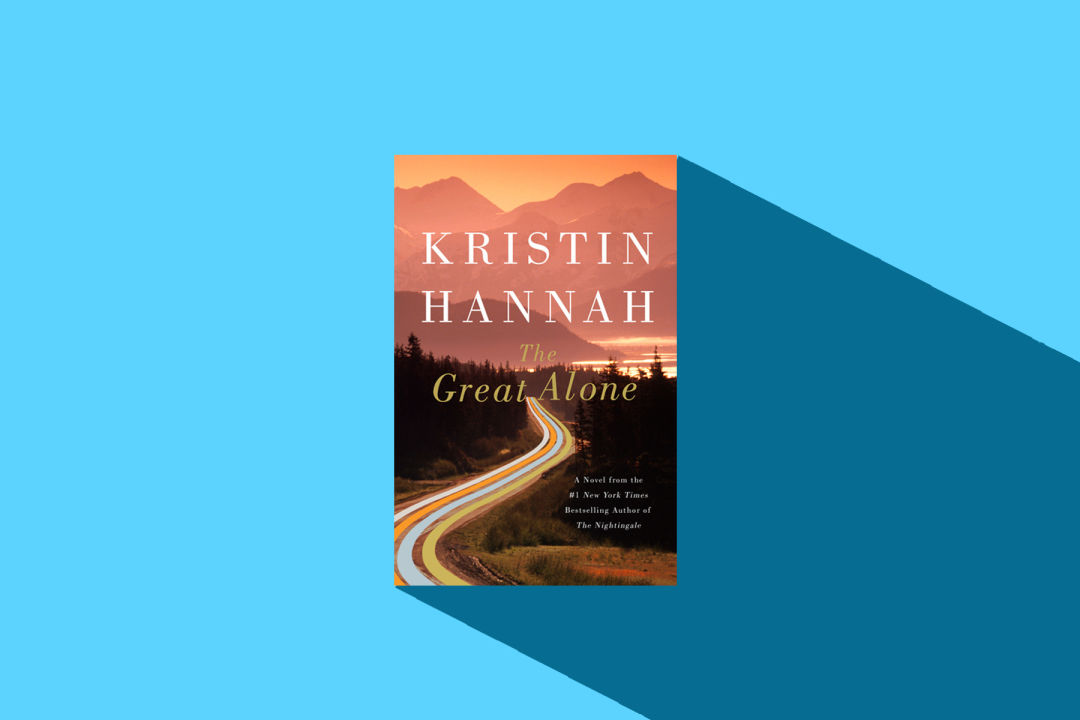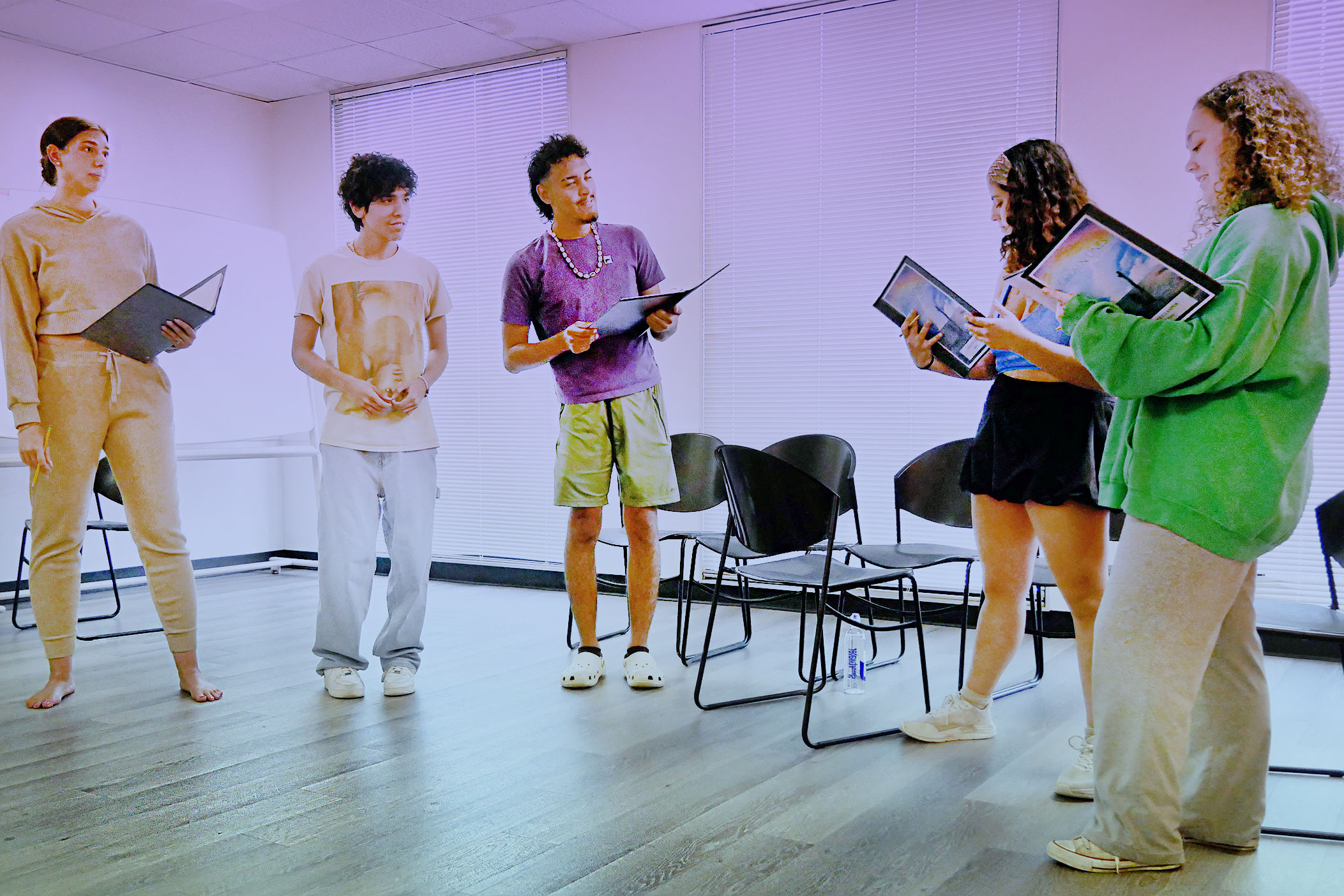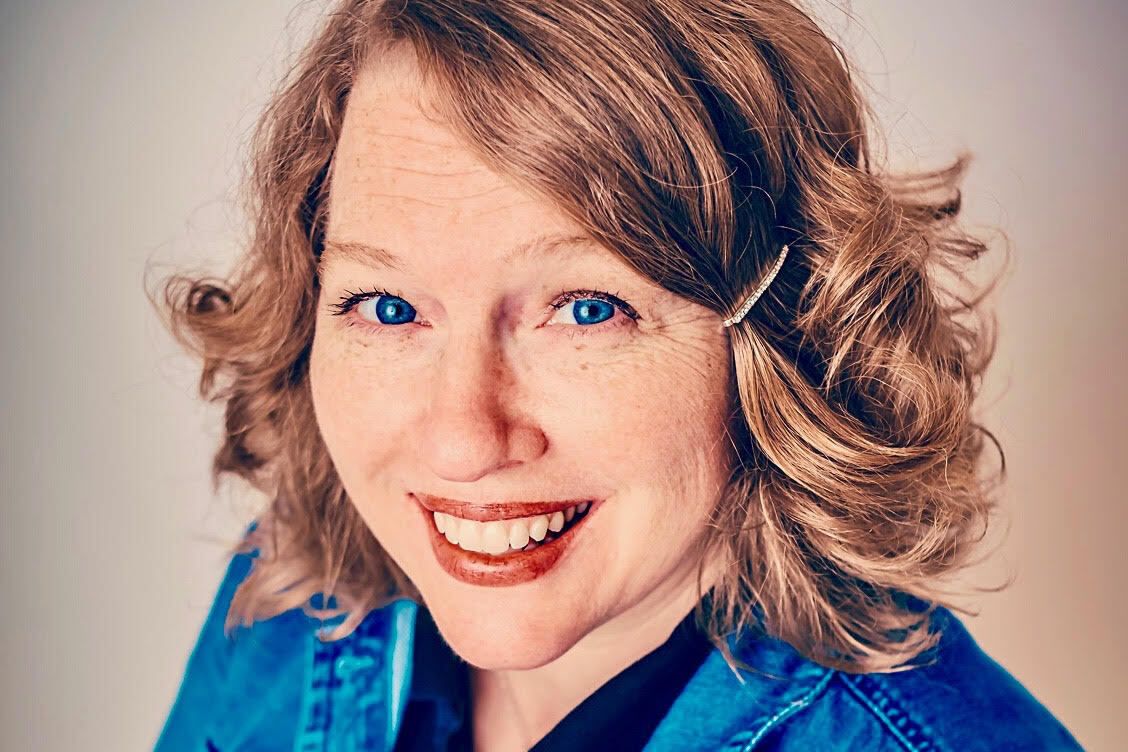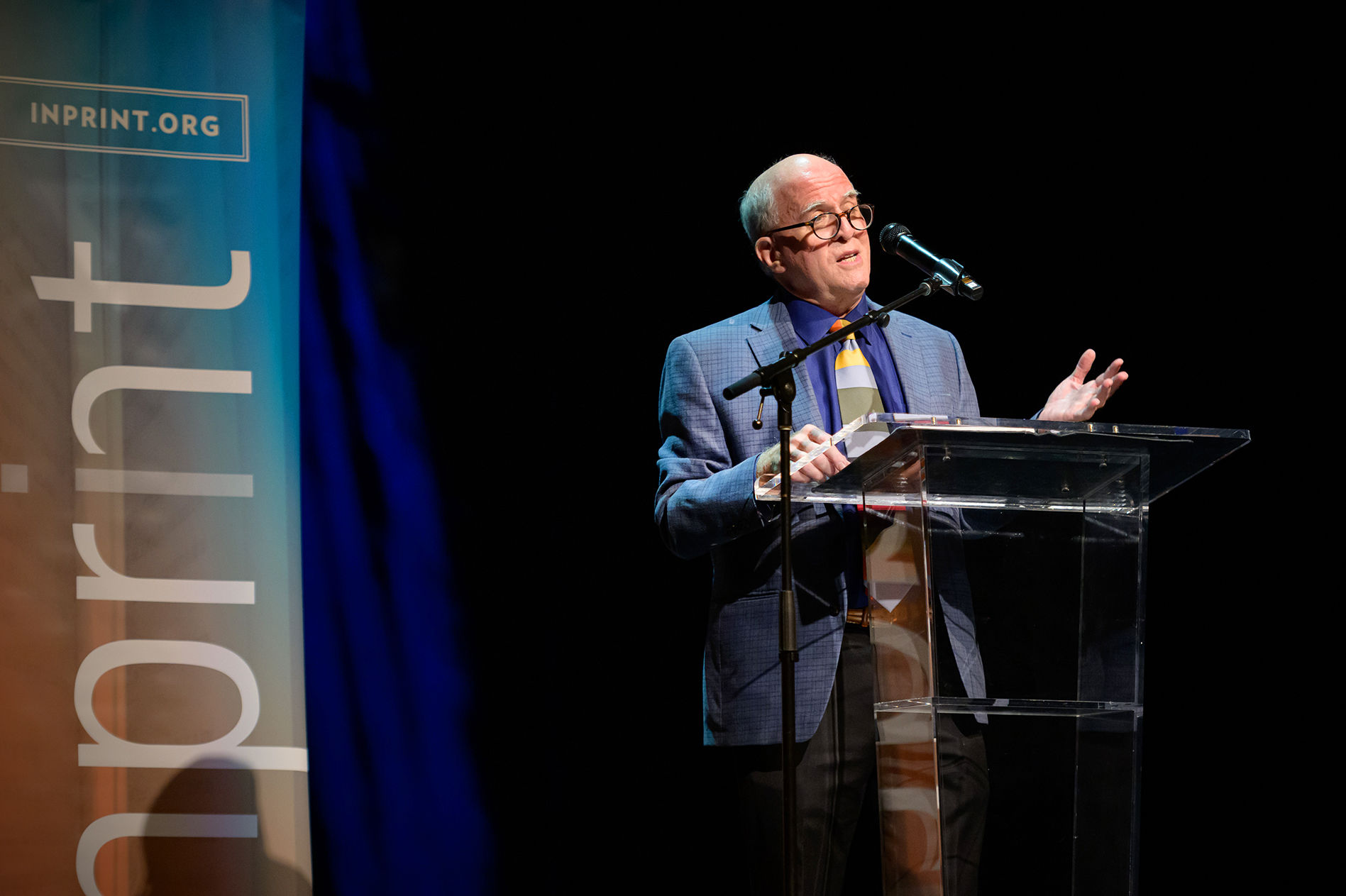Kristin Hannah Isn't Afraid to Talk Poop

Image: St. Martin's Press
What’s a writer to do when their last book was a smash hit, No. 1 New York Times bestseller, and a Wall Street Journal Best Book of the Year? For Kristin Hannah, the answer was freaking out a little, and then writing the next book.
Hannah has been writing and publishing for decades, but her World War II novel The Nightingale became a huge bestseller and the biggest book of her career after its release in 2015. So when it came to writing The Great Alone, now in paperback, the pressure was on. Hannah looked back to her writerly roots and her family’s history with America's last frontier to write the book, which follows Leni Albright and her family as they take a risk and move to the nation’s most dangerous state.
Hannah will chat with fellow author Katherine Center at Palmer Memorial Episcopal Church on Wednesday, October 2, in an event presented by Brazos Bookstore. We caught up with Hannah to talk choosing a title, things smelling like poop, and dealing with stress before she visits Houston.
Did the success of The Nightingale affect how you wrote The Great Alone or create some extra pressure?
We can definitely say it created extra pressure. For about a year, I was really rather confused a bit about what I was going to do. I just so strongly didn’t want to let people down. I struggled for about a year with what I was going to do next, how I would follow this up. That’s why it was helpful that The Nightingale’s success built slowly: I had a lot of time to deal with it. Ultimately, after a year of stressing out about what to write next, I settled in to who I am again, and wrote this big adventure set in Alaska that I wanted to read—about a young girl becoming a strong woman in these difficult circumstances. I just hoped that readers would follow me. And thankfully, they have.
The Great Alone feels so authentic and lived-in, and it all made sense once I read the acknowledgments and realized your connection to Alaska. As someone who has called that place home, what details did you want to make sure you got right?
I don’t really consider it home, but it’s a place I’ve loved. In the late 1970s, my parents, who were adventurers, went up to Alaska and fell in love with it. And they built the Great Alaska Adventure Lodge on the banks of the gorgeous Kenai River. So it’s still our family’s business—three generations of our family have worked there. It’s just a place that we all know pretty intimately, as intimately as you can know someplace and not live there year-round and live there in the winter.
I really just wanted to show people the Alaska that I know: the rugged individualists, the romantics, the fringe-dwelling outback living people who are off the grid and have chosen to live a life on their own terms and in their own way. And of course, the spectacular beauty and danger of the place.
Robert Service’s poetry is integral to Leni’s life and her family’s story, and it also provides the book’s title. Can you tell me about your connection to his work?
He is part of the whole mythology of why my family loves Alaska so much. When we were kids, we did a lot of camping: all of us in a Volkswagen bus, picking up and looking for places off the map. My dad loved doing that. We had no destination, we all just voted on what road to turn on. And in the evenings, we’d sit around the campfire, and he’d recite Robert Service poems by heart. I think he loved Alaska before he was even there, and passed that love on to his kids. So those Robert Service words are just deep in me in terms of addressing and understanding that vision of Alaska.
When did you know The Great Alone was going to be your title?
Unusually, before I ever started writing. And that is extremely, extremely rare for me. The Land of the Midnight Sun and The Last Frontier were the two sort of obvious choices about the state, and I really wanted to telegraph to people that this book was Alaskan in its bones. And then I remembered “the Great Alone,” and the poem, “The Shooting of Dan McGrew,” and it was just perfect from day one. It was very, very lucky.
A small moment I absolutely loved is when Leni and her parents arrive at their new house, and the first thing that Leni notices, and I quote, is that it smells like poop. I feel like a lot of novelists would write around that word or elevate it in some way by saying defecation or excrement, but it so perfectly nails Leni’s age and mindset.
(Laughs.)
What was your process for developing and growing Leni’s voice as you wrote?
Leni is, in some ways, me. We would’ve been the same age. And I just remember being 13, 14 so well. It’s such a difficult time, even if you don’t have the challenges that Leni had. And she had a lot of challenges with her unpredictable family, and then they move into this dangerously unknown landscape with no real plan of how to live. It was really more just remembering how you feel in adolescence and how you look at the world and then allowing her to grow as we grow.
That’s one of the reasons that I kept giving her books to read—Robert Service and these other authors—that are helping her come into her own until she becomes this wonderful young woman who can jump on a snowmobile and go into the middle of nowhere and feed her family. I just loved the evolution of her and the empowerment of her, even as her father is sort of tearing the family down and putting her and Cora at as much risk as anything Alaska could throw at them. There’s a line in the book where she understands the danger is within her family, not just outside it.
Exactly. I also just love the dissonance of her parents saying, “We’re going on this grand adventure!” and Leni’s like, “OK, it smells like poop.”
(Laughs.) Yup! That is the first moment where you think, “We’re not in Kansas anymore.”
You’ve been writing and publishing books for nearly 30 years now and have a devoted following. What was it like to have The Nightingale become such a smash hit?
It was really unexpectedly life-changing. Like you said, I’ve been doing this a long time. And I had reached a very comfortable level of success: the books were selling well, I had readers who loved them, and I loved writing them. Everything was going along pretty well for about a decade. And then The Nightingale came out and just became this worldwide phenomenon. The good news for me is that it didn’t happen overnight. It was a long, slow build to get where it is. It has really changed the trajectory of my career. There are just so many more people who are reading me now, and going back and reading the other books and loving them as well, which is really great. A little stressful, but really great. (Laughs.)
I’m sure this is the dream: steadily publishing, people are reading and loving the books, and you get to keep going, but then something like that happens. I’m sure it’s like you said: wonderful but a little overwhelming.
It really is! And I felt very keenly a responsibility to follow up with a book that was not just a retelling or a different version of The Nightingale. I wanted to write something that was completely different and say to readers, “I’m still going to be who I always was. I’m still going to follow the stories I love wherever they lead me.”
Kristin Hannah in conversation with Katherine Center, Wednesday, October 2 at 7:30 p.m. Presented offsite at Palmer Memorial Episcopal Church, 6221 Main Street. Tickets $17.99. More information at brazosbookstore.com.




